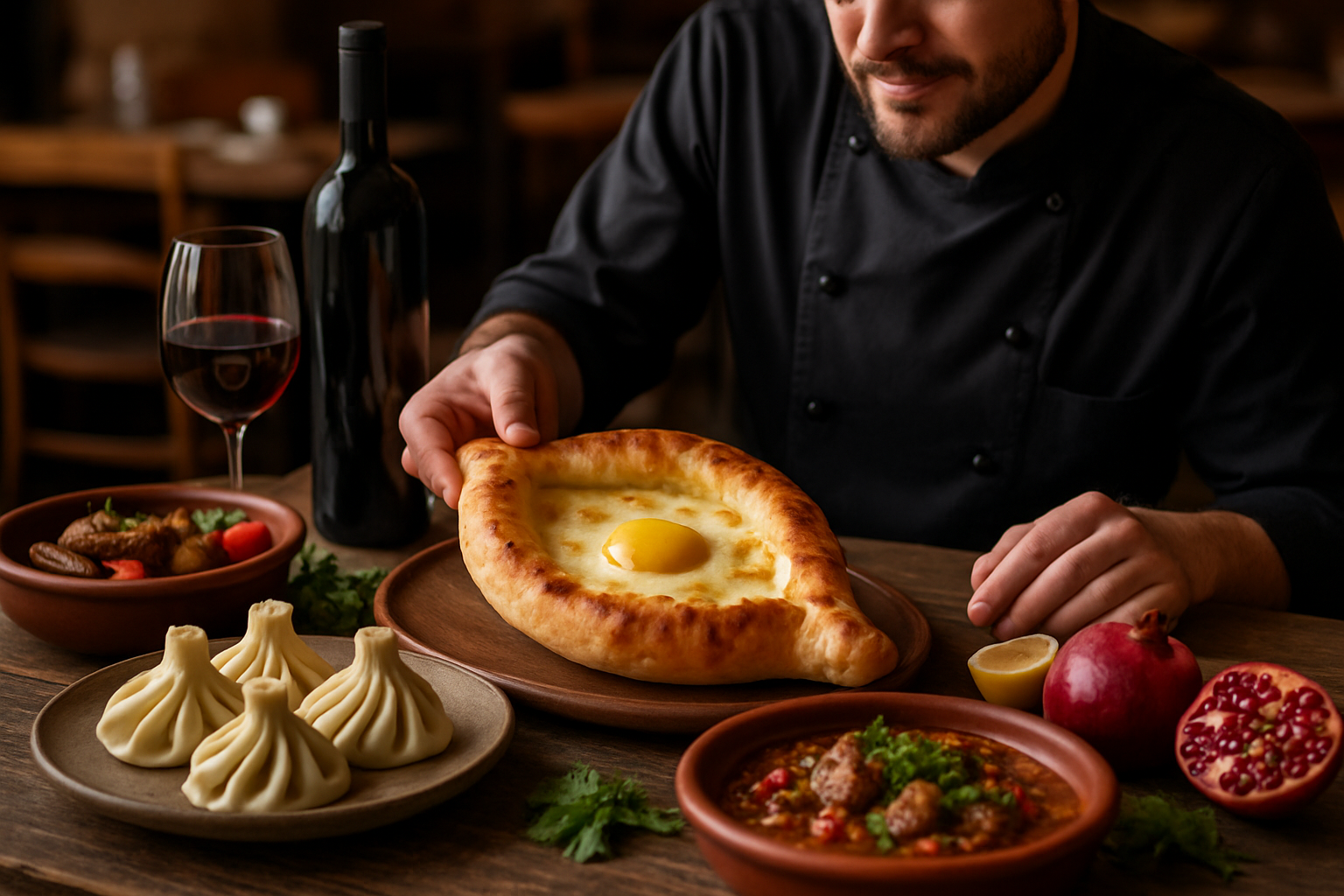Generational Cuisine: How Food Shapes Modern Identity
Culinary experiences are increasingly defining generational identity. From Millennials' obsession with avocado toast to Gen Z's penchant for experimental fusion cuisines, food choices have become powerful markers of age cohorts. This trend reflects deeper societal shifts in values, lifestyle, and cultural expression. Read below to explore how different generations are crafting their identities through what's on their plates.

The Rise of Food as Identity Marker
Food has always played a central role in human culture, but its significance as a marker of personal and generational identity has intensified in recent decades. This shift can be attributed to several factors, including globalization, social media, and changing attitudes towards health and sustainability. As the world becomes more interconnected, people have access to a wider variety of cuisines and ingredients than ever before. This abundance of choice has allowed individuals to curate their food experiences in ways that align with their values, beliefs, and lifestyle preferences.
Social media platforms have amplified this trend, providing a space for people to showcase their culinary adventures and connect with like-minded individuals. The act of sharing food photos and recipes has become a form of self-expression and a way to signal one’s membership in a particular generational or cultural group. This digital food culture has given rise to new culinary trends and subcultures, further reinforcing the link between food choices and identity.
Baby Boomers: Tradition with a Twist
Born between 1946 and 1964, Baby Boomers have witnessed significant changes in the food landscape over their lifetimes. While they tend to value traditional cuisine and cooking methods, many Boomers are also embracing healthier eating habits and exploring new flavors in their later years. This generation often views food as a means of connection and nostalgia, with family recipes and comfort foods playing a central role in their culinary identity.
However, Boomers are also adapting to modern food trends, incorporating elements of global cuisine and health-conscious eating into their diets. Many are rediscovering the joy of cooking in retirement, experimenting with new ingredients and techniques while still maintaining a connection to their culinary roots. This blend of tradition and innovation reflects the Boomer generation’s broader approach to life, balancing respect for the past with openness to change.
Generation X: The Culinary Bridge
Generation X, born between 1965 and 1980, occupies a unique position in the food landscape. Having grown up during a time of rapid technological advancement and cultural change, Gen Xers often serve as a bridge between traditional and modern culinary approaches. This generation values convenience and practicality in their food choices, but also appreciates quality and authenticity.
Gen Xers were among the first to embrace the foodie culture, seeking out new and exotic dining experiences. They have played a significant role in popularizing fusion cuisines and farm-to-table dining, reflecting their desire for both novelty and authenticity. At the same time, many Gen Xers maintain a connection to the comfort foods of their childhood, creating a culinary identity that blends nostalgia with adventure.
Millennials: Food as Experience and Ethics
Born between 1981 and 1996, Millennials have earned a reputation for their food-centric lifestyle. This generation views food not just as sustenance, but as a form of self-expression, social currency, and ethical statement. Millennials are more likely than previous generations to prioritize experiences over material possessions, and dining out or trying new cuisines has become a key part of this experiential focus.
Millennials are also highly conscious of the ethical and environmental implications of their food choices. They are more likely to embrace vegetarian or vegan diets, seek out organic and locally-sourced ingredients, and support restaurants and brands that align with their values. This generation has been instrumental in driving the growth of food delivery apps, meal kit services, and Instagram-worthy food trends, reflecting their desire for convenience, novelty, and shareable experiences.
Generation Z: Digital Natives and Culinary Innovators
As the youngest generation currently coming of age, Gen Z (born between 1997 and 2012) is already making its mark on the culinary world. Growing up in a digital-first environment, this generation approaches food with a global perspective and a willingness to experiment. Gen Z is known for its interest in diverse cuisines, plant-based eating, and visually striking food presentations.
Social media platforms like TikTok have become powerful tools for Gen Z to discover and share new food trends, often driving viral crazes that spread rapidly across the globe. This generation is also highly attuned to issues of sustainability and social justice, often choosing to support businesses and products that align with their values. As Gen Z continues to come of age, their influence on the food industry is likely to grow, potentially reshaping culinary norms and practices for years to come.
The Future of Generational Cuisine
As food continues to play an increasingly important role in shaping generational identities, we can expect to see further evolution and innovation in culinary trends. The boundaries between generational food preferences may become more fluid, with cross-pollination of ideas and flavors across age groups. At the same time, new technologies and changing social norms are likely to give rise to entirely new ways of experiencing and sharing food.
The growing focus on sustainability and ethical consumption is likely to influence food choices across all generations, potentially leading to a more plant-based and locally-sourced food culture. Virtual and augmented reality technologies may create new possibilities for shared dining experiences, blurring the lines between physical and digital food cultures.
As society continues to grapple with issues of identity and belonging, food will undoubtedly remain a powerful medium for self-expression and community building. By understanding the complex relationship between generational identity and culinary choices, we can gain valuable insights into broader social trends and the evolving nature of human culture in the modern world.





